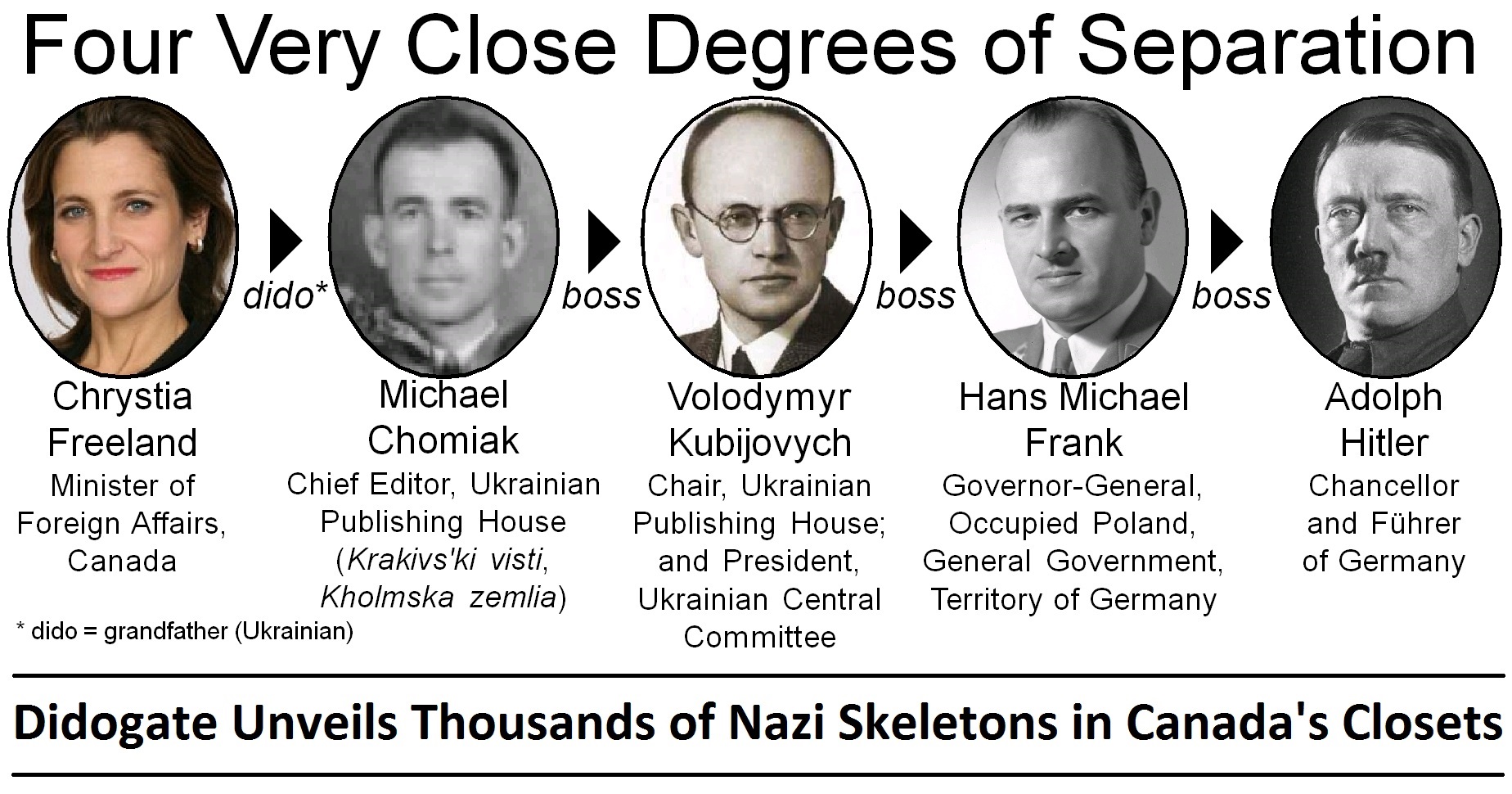
Minister Freeland's Grandfather,
Fake News,
|
|
|
By Richard Sanders, editor, Press for Conversion! magazine of the Coalition to Oppose the Arms Trade, March 22, 2017 "It takes a village to raise a Nazi" (old African proverb, slightly modified) |
|
|
1-
Introduction 2 - The Liberal Government's Warm Embrace of Ukraine's Nazi Collaborators 3 - Historical Amnesia and the Blinding Effects of Propaganda 4 - The Nazis as Victims? Sure, just Blame the Russians! 5 - Canada needs Truth and Reconciliation, not Denials and Obfuscation 6 - Historical Denial among Canada's ultranationalist Ukrainians 7 - Michael Chomiak, The Ukrainian Central Committee and its Nazi Newspapers 8 - Aryanisation and the "Mighty Wurlitzer" 9 - The Ukrainian Canadian Congress and its Fascist Roots 10 - Getting them Early: Building the ultraNationalist Cause among Children and Youth 11 - The Freeland-Chomiak Parallels in Advocacy Journalism 12 - Was Freeland an "Accidental Journalist," or Groomed for the Job? 13 - In 1989, Freeland was Declared an "Enemy of the Soviet State" 14 - A Chomiak-Freeland Fixation on Jewish Oligarchs running the Kremlin 15 - Freeland's Kremlin-Oligarch Theory goes Global with Jewish Plutarchetype 16 - Institutionalised Confidence Scams: An Open Conspiracy of Oligarchs, Politicians and Journalists 17 - Escaping the War Racket starts with Seeing the Elephant 18 - Just Following Orders? Which Orders? 19 - Is there a Bear in the Room? Kill it! 20 - The Collective Care and Feeding of Russophobia 21 - The Need for Truth and Reconciliation
If you appreciate the work that went into this research, please
subscribe &/or donate.
You can mail this
coupon
to COAT, or use the
Paypal link
on our homepage. Subscription prices:
Captive
Canada: This issue (#68) deals with the mass internment of Ukrainian Canadians, this community's left-right split and the mainstream racist, xenophobic anti-communism of progressive "Social Gospellers" (like the CCF's J.S. Woodsworth) who were so captivated by their false beliefs that they carried out the genocide of First Nations and turned a blind eye to government repression during the 20th-century "Red Scare." The main thesis is captured
here: |
Part 20 Throughout her career as an activist for the nationalist Ukrainian cause, Freeland has had the backing of powerful communities which know that she has done them proud. Freeland has held her ground as a brazen mouthpiece for right-wing antiRussian, Ukrainian Canadian community, she has stood up against Russia for the Trudeau Liberals and, she has held high-ranking positions within some of the world's largest media businesses which have constantly poked at the Russian bear.
To all three of these trusted arbiters of the truth, the scandal is not that her grandfather was a cog in Nazi's mighty Wurlitzer, but that anyone would have the temerity to expose that truth. These communities that have nurtured Freeland's rise to celebrity stature must be acknowledged and credited for having put her where she is today. They have encouraged and emboldened Freeland's work, and given her the platforms from which to speak their shared version of the truth about Russia. Nazi heritage or not, she seems to have their utter confidence. In comparison to the power wielded by these three communities, the importance of Freeland's grandfather's influence may seem insignificant. In this sense, the focus on her grandfather's Nazi past is a distraction. Ironically though, it is this distraction which may lead people to see beyond the key individual players in these theatrics, namely Freeland and Chomiak. There is a bigger story that needs uncovering. This back story involves huge social institutions ‑ nationalistic, political, economic, journalistic, religious ‑ and the common enemy which they have long ago chosen for themselves. Freeland's worldview that the Russian government is our common enemy, is shared by some very powerful elements within the social institutions that have backed Freeland's rise to prominence. Freeland's ascent through their ranks has been facilitated by her usefulness as a spokesperson for the West's official narrative that Russia as an eternal enemy. She therefore has a mutually beneficial relationship with these institutions.
Chrystia Freeland has become quite famous for the cartoon-like imagery with which she portrays Putin and Russia. Her insistent harangues branding them as global villains, is widely considered Russophobic, especially to Russians. She has, for instance, labelled Putin as a "Sultan" and a "dictator" attempting to "institutionalize Russian authoritarianism" in a "resumption of absolute power," through a "sultanistic ... neo-patrimonial regime."[i] "Putin's Kremlin," she has said, pursued "the Pinochet model — authoritarian political rule combined with market reforms," that has "now degenerated into an authoritarian and increasingly autarchic kleptocracy — and one bent on war."[ii] In her assessment of the "threat he poses and how to contain him," Freeland declared that "Putin is the ruler of an authoritarian regime" and that "to secure his hold on power" "it really is the case that l'état, c'est moi." In Freeland's eyes, "Putin poses a novel challenge to the world order because his ... goal, since he first entered the Kremlin in 2000, has been to work out how to be an authoritarian ruler."[iii] Freeland's rhetorical vehemence exudes such an overwhelming confidence that it may inspire people ‑ especially those who don't access other points of view ‑ to accept her perspective of the truth without having to seek any independent sources of verification.
"Is this the kind of hyphenated Canadian we want, with a non-Canadian agenda, running Canada's foreign policy? 'One day we'll have to stop him,' writes Freeland about Putin. What does that mean? It sounds like a threat... and puffery and dangerous nonsense. Is that the kind of inflammatory rhetoric we want, as Canadians, from our minister of foreign affairs? As a Canadian, who voted Liberal in the last election, I dare to hope not."[v] |
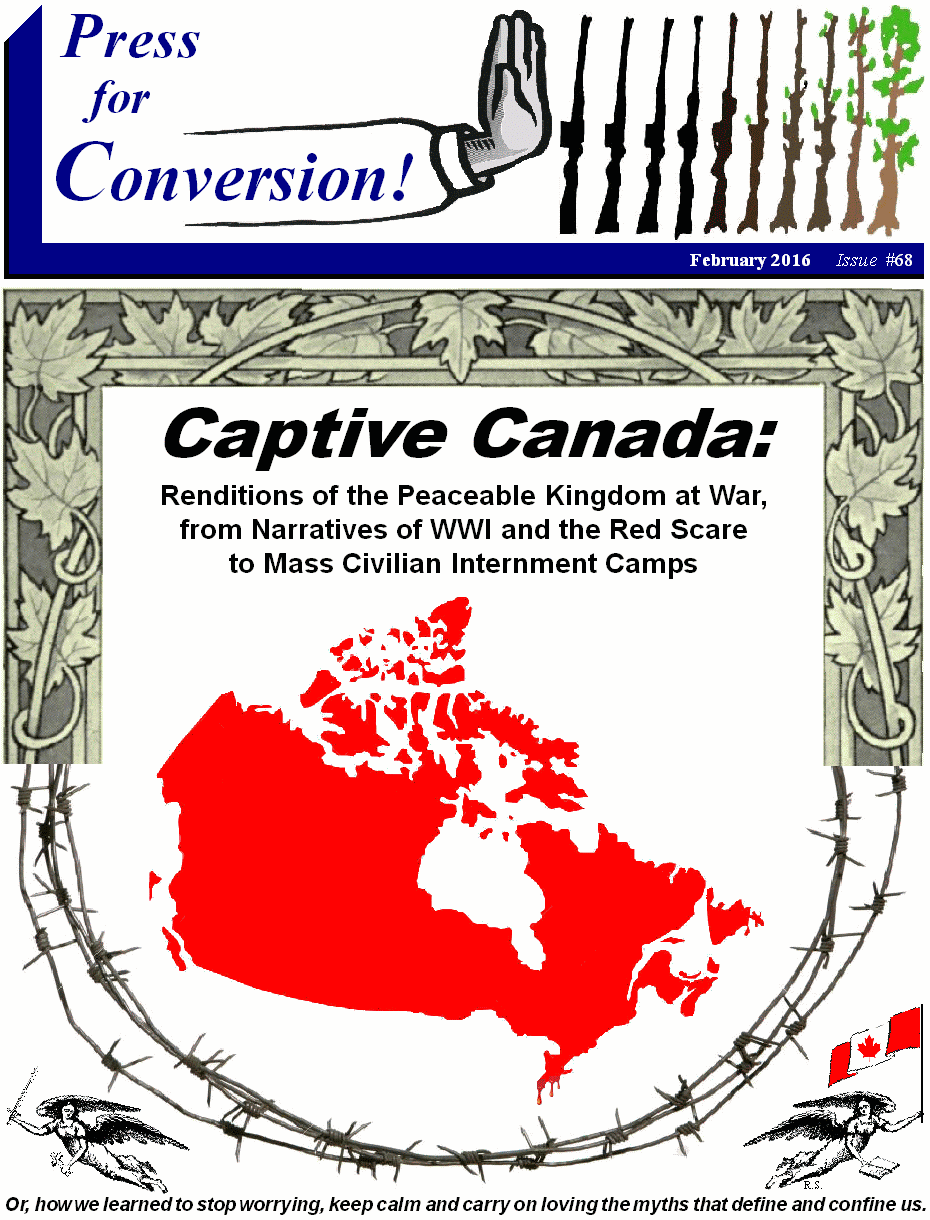
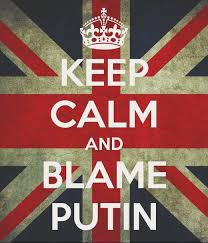 That is why, in
Freeland's current struggle to deflect attention from her grandfather's
shameful Nazi past, members of these three communities are standing shoulder
to shoulder with her: Canada's Ukrainian diaspora, ably led by Bandera
supporters from the Ukrainian Canadian Congress (UCC); the Liberal
government of Canada which, having facilitated the creation of the UCC in
1940, fully supports her confrontational approach to Russia; and those
members of the corporate media who are struggling to point the finger at
Russia because they believe it is to blame for the Freeland-Chomiak
scandal.
That is why, in
Freeland's current struggle to deflect attention from her grandfather's
shameful Nazi past, members of these three communities are standing shoulder
to shoulder with her: Canada's Ukrainian diaspora, ably led by Bandera
supporters from the Ukrainian Canadian Congress (UCC); the Liberal
government of Canada which, having facilitated the creation of the UCC in
1940, fully supports her confrontational approach to Russia; and those
members of the corporate media who are struggling to point the finger at
Russia because they believe it is to blame for the Freeland-Chomiak
scandal. 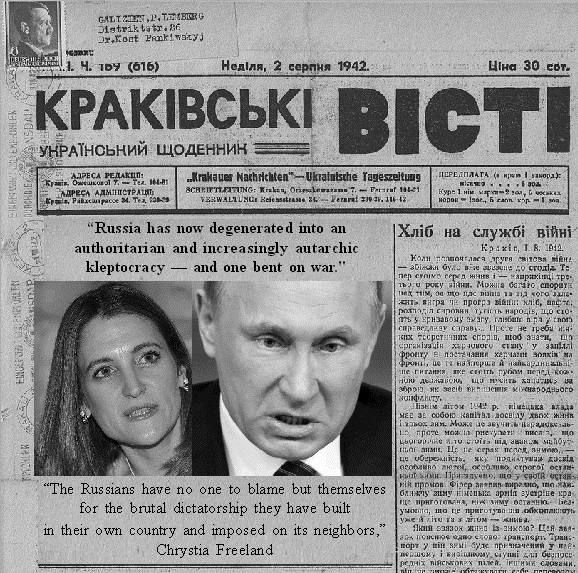
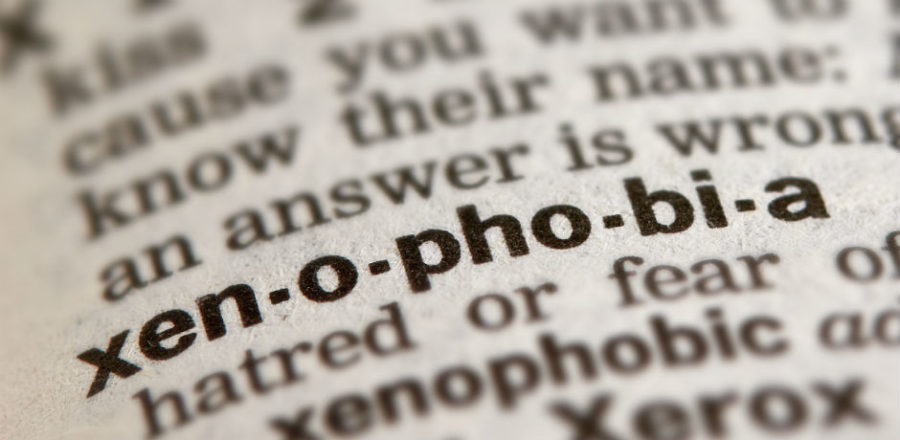 Her fearmongering diatribes about Russia
also echo with such frequently that her readers may become mesmerised. The
sheer repetitiveness of her ad hominem attacks are dizzying. In one
article alone, Freeland hurled the epithet "authoritarian" at Russian
leadership no less than 18 times. And, just for good measure, she also
threw in three "authoritarianism-lites" and another reference to
"authoritarianism," bringing her use of the A-word to a record 22 times in
this one short exposition. She concluded this particular invective with a
commanding order that seems to fall somewhere between a bellicose threat and
a rallying cry for war against Russia's leading politician, if not against
the country as a whole: "Whether it is in Ukraine, or elsewhere, one day we
will have to stop him."
Her fearmongering diatribes about Russia
also echo with such frequently that her readers may become mesmerised. The
sheer repetitiveness of her ad hominem attacks are dizzying. In one
article alone, Freeland hurled the epithet "authoritarian" at Russian
leadership no less than 18 times. And, just for good measure, she also
threw in three "authoritarianism-lites" and another reference to
"authoritarianism," bringing her use of the A-word to a record 22 times in
this one short exposition. She concluded this particular invective with a
commanding order that seems to fall somewhere between a bellicose threat and
a rallying cry for war against Russia's leading politician, if not against
the country as a whole: "Whether it is in Ukraine, or elsewhere, one day we
will have to stop him."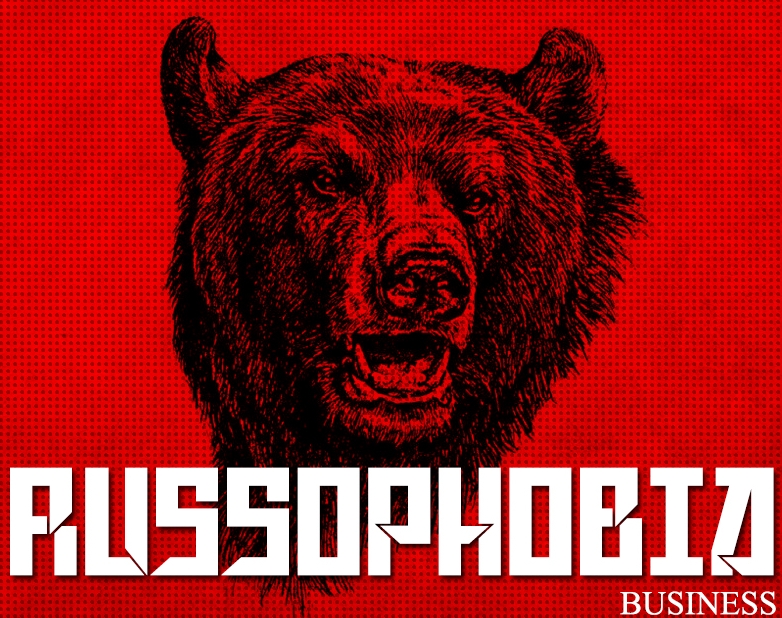 If by "we" Freeland meant NATO, and
if by "will have to stop him," she meant by war, then Canada ‑ and
the world at large ‑ may be in very serious trouble. "
If by "we" Freeland meant NATO, and
if by "will have to stop him," she meant by war, then Canada ‑ and
the world at large ‑ may be in very serious trouble. "